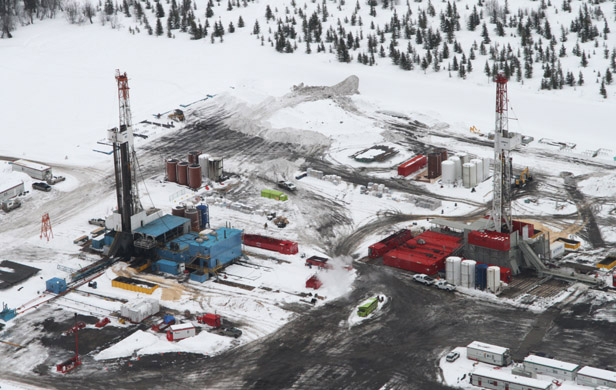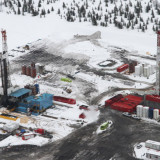
CALGARY – With the Northwest Territories preparing to take control of its resource development next spring, its industry minister has been busy looking at the best way to regulate its nascent shale oil industry.
A devolution agreement kicks in on April 1, at which point oversight of most oil, natural gas and mining activities will move from the federal to the territorial government.
That means David Ramsay — who manages the industry, tourism, investment, public utilities and justice cabinet portfolios — has a busy five months ahead of him.
The minister is in Calgary this week to speak to energy companies active in the north about what changes may be in store and get their feedback. He’s also been meeting with regulatory and Alberta government officials.
“We really just to let them know that it’s going to be as seamless a transition as possible,” he told reporters Wednesday.
Ramsay is looking at which regulatory model would best serve the territory, and a decision is expected to be made soon. Says Ramsay:
[quote]We need to be ready. We can’t afford not to be.
[/quote]
Ramsay said he likes how the Alberta Energy Regulator works. The recently created AER combines the functions of its predecessor, the Energy Resources Conservation Board, with those of other government departments, leading to less duplication.
He said the Northwest Territories has a “tremendous” opportunity in the Central Mackenzie Valley, where companies such as Husky Energy Inc. (TSX:HSE), ConocoPhillips and others are in the early stages of exploring for oil in the Canol shale.
Getting oil out of the Canol requires hydraulic fracturing, or fracking — a method that entails breaking the rock with a high-pressure mixture of water, chemicals and sand.
While fracking has been controversial and many jurisdictions have declared moratoriums on the practice, Ramsay said he’s convinced that extraction method is safe.
One of the biggest challenges ahead will be staffing the new regulator to ensure it has the right expertise to oversee the type of energy development that’s new to the territory.
The devolution agreement does not cover the offshore and the National Energy Board will continue to oversee drilling in the Beaufort Sea.
However, Ramsay said the Northwest Territories government is in talks with Ottawa about sharing some of that responsibility — perhaps under a model similar to offshore petroleum boards in Newfoundland and Labrador and in Nova Scotia.
Most of the Northwest Territory’s royalty take will be used for much-needed infrastructure projects such as roads. But a yet-to-be determined portion will be set aside in a savings fund, he said.
Read about a new lawsuit against BC’s oil and gas regulator.

